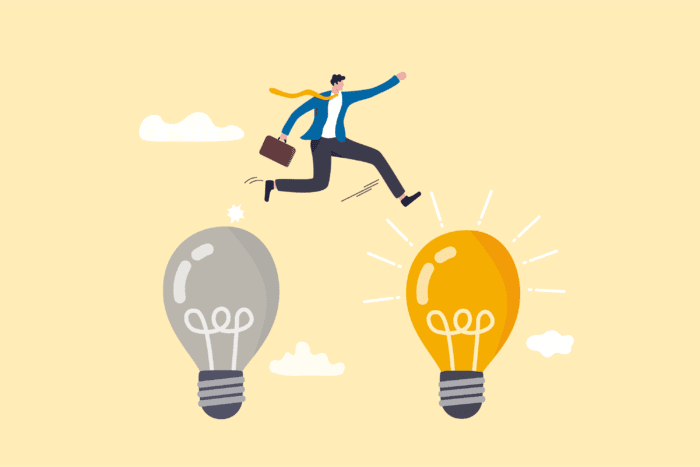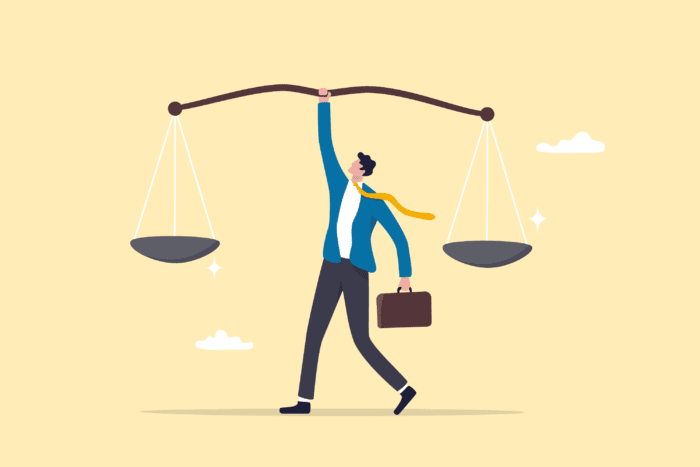In your career as lawyer so far, you probably had to overcome moments of self-doubt and stretch yourself beyond your comfort zone as you embraced new perspectives. And the effort has been worth it, not only because of your achievements but because of the person it has helped you become. You flexed your mental muscles and developed grit, a skill you can draw on in all aspects of life, in the practice of law and beyond.
Despite the doom and gloom about a looming recession, it’s still an exciting time to be part of the legal profession. Traditionally slow to change, law is not immune to disruption. The rumblings of change have been on the cards for quite some time.
Initially it was spearheaded by visionary outliers who had the courage to look beyond their context to see what was happening in other industries. More recently, agility, innovation, and change have become mainstream concepts as the profession was forced to adapt in the context of a global pandemic. Things that once seemed impossible such as online hearings and remote work have become common place. CPD offerings online, on-demand and easier to access is just one other example. Culturally this has shifted the collective mindset of the current custodians and leaders of the profession and expanded their perception of what is possible.
This also means that enlightened leaders recognise that you, the future of law, bring unique skills and perspectives to the practice of law. Not only because of your awe-inspiring status as digital natives but also because of skills, knowledge and insights gleaned about the world before becoming too constrained by precedent and tradition.
So, where does your value lie? And how can you ensure that you thrive in your future career?
All the skills, mindsets, and attitudes you bring to the practice of law are what will help you not only contribute, but also derive satisfaction and meaning from what you do and contribute in the most impactful way. Specifically:
Curiosity

The late Shunryu Suzuki wrote about the concept of Shoshin in his book “Zen Mind, Beginner’s Mind”:
“In the beginner’s mind there are many possibilities, but in the expert’s mind there are few.”
As you progress in your career, you will gradually increase in your confidence and expertise as you practice the art of lawyering. You will apply precedent, follow rules, and defer to authority. As you develop this sense of competence, do not be afraid to revisit the place of not knowing and question everything. Stay curious and be open to new possibilities. Look up and look around, learn voraciously about the context within which you practice and continue to embrace possibilities and opportunities.
Adaptability

Change is the only certainty. Law firms of the future need people who can adapt to changing circumstances and environments. Historian and futurist Yuval Noah Harari states that to stay relevant – not just economically, but above all socially – one will need the ability to constantly learn and to reinvent oneself. One will need a lot of mental flexibility and great reserves of emotional balance. This means being resourceful and enterprising to embrace new ideas. Rand Spiro describes cognitive flexibility as “the ability to spontaneously restructure one’s knowledge in adaptive response to radically changing situational demands.” Consider how you can be sufficiently versatile to respond to novelty.
Self Awareness

Objective analysis and evaluation trump knowledge in the information age. It is a problem that much of our thinking is clouded by unconscious bias. In other words, decisions that appear rational and considered are affected by blockers such as:
- Confirmation bias (evident in social media echo chambers for example).
- A fast-paced lifestyle leading us to fall into what behavioural economist Daniel Kahneman would refer to as System 1 (short-cut) thinking.
- Cultural Conditioning.
- Labels.
- Black and White Thinking.
- Halo Effect.
- Hindsight bias, etc.
Lawyers of the future need awareness of bias that affects them so they can see more clearly and make better decisions. A great place to learn about cognitive bias is Daniel Kahneman’s book, “Thinking, fast and slow”.
Empathy

Samantha Power, former U.S. Ambassador to the United Nations, once said that: “All advocacy is, at its core, an exercise in empathy.”
Being able to stand in the shoes of others is essential to effective lawyering. This does not mean, taking on your client’s problems as your own, or becoming clouded by sentimentality but rather considering how another person may perceive or experience a problem or situation. Such a perspective will certainly help you deliver your services in a more client-centric way. It may also help you help your client resolve disputes more readily and advance commercial matters more efficiently as you pre-empt questions or concerns the other party may have in a contract negotiation, for example.
Values

In a rapidly changing world, values are our anchor and what grounds us. Take your ethical obligations and commitment to the higher road seriously and let it be your guiding light. Reflect on and develop your character so that you can embody the change the world needs. On your path, there will be many shiny objects, which may divert you from your path. But, by recommitting to your purpose and values regularly, you can stay true to yourself and have a greater chance of contributing in a way that both delivers and derives meaning. In the early days, you may not know your purpose, but you can certainly develop a picture of who you want to be in the broadest sense and start from there.
As you see, the practice of law offers much more than the ability to offer legal advice, negotiate a transaction or advocate in court. With the right mindset, it can also be the context for your own journey towards self-actualisation with the great news being the greater person you become, the more effective a lawyer you can be. And, if you’ve ever worried that you are not cut-out for the practice of law, don’t. The profession is a broad and roomy one with opportunities well beyond private practice including public policy, legal innovation and operations, in-house counsel opportunities and more. At Leo Cussen, we look to partner with you to transform the profession, knowing that all change comes first from within.
Written by Liz Chase, Head of Innovation and UX

Invest in your future with ongoing professional development. View our range of CPD programs including online, pre-recorded webcasts, practical workshops and more.

